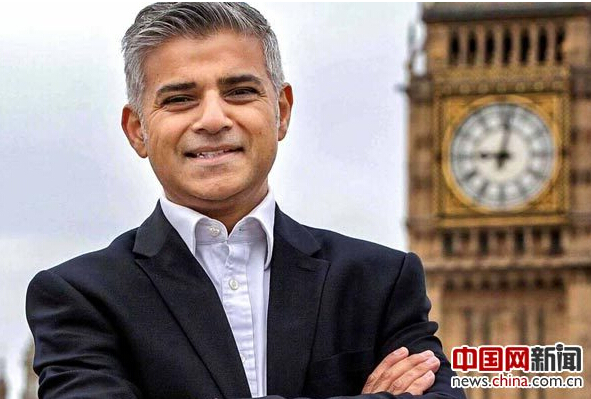London's first Muslim mayor must tackle the housing crisis
- By Heiko Khoo
 0 Comment(s)
0 Comment(s) Print
Print E-mail China.org.cn, May 13, 2016
E-mail China.org.cn, May 13, 2016
|
|
|
London's first Muslim mayor Sadiq Khan [File photo] |
Sadiq Khan is the newly elected mayor of London. Many observers in Britain and from abroad have pointed to fact that Khan is a Muslim. This is important in the context of a hostile and divisive campaign run by Zac Goldsmith, which was echoed by Prime Minister David Cameron. Both seemed intent on smearing Khan and misrepresenting him as being soft on Islamic terrorism. In light of this, the fact that Londoners ignored that message and voted for a Muslim – despite the recent terrorist attacks in Paris – indicates how diverse, sophisticated and internationalist the London electorate has become.
Of course, there are real fears that London will face new terrorist attacks from home-grown terrorists coming from alienated Muslim communities in the U.K. The stark reality is that the breeding ground of such alienation is poverty, social exclusion and the lamentable, but predictable, consequences of British military intervention in Iraq, Afghanistan and elsewhere.
Khan's electoral profile and manifesto commitments revolve around socio-economic issues. He has emphasized the fact that his father was a bus driver and has sought to address the divisive impact of London's unaffordable property market. London suffers from extreme inequality. The poor – defined as those earning less than 60 percent of the national average income – constitute some 27 percent of city's population. Over 2.25 million of its inhabitants live below the poverty line and this includes 21 percent of working families. Indeed, the parasitic character of the London housing market exacerbated an already steep rise in inequality; for example, 860,000 people living in private rented accommodation live in poverty.
Critics from the right-wing such as Janan Ganesh, a political columnist at the Financial Times, argue that the success of London inevitably entails economic extremities and housing unaffordability. London, he says, is in a special league, like Hong Kong, New York and Tokyo, and, therefore, it cannot become an affordable city like Berlin. Ganesh argues that, nevertheless, Mayor Khan will be able to: leverage planning permission to pressure property developers to provide quotas for affordable housing; push the national government to extend the city limits into what is presently defined as the "green belt" (protected rural land); and build more low-cost or affordable rental accommodation. In truth there is a lot more that can be done.
Khan's campaign promises to build 80,000 homes a year, with 50 percent sold or rented at "genuinely affordable" prices. But his predecessor, Mayor Boris Johnson, failed to build even 24,000 new homes a year. So the question of how Khan will actually realize this objective remains?






